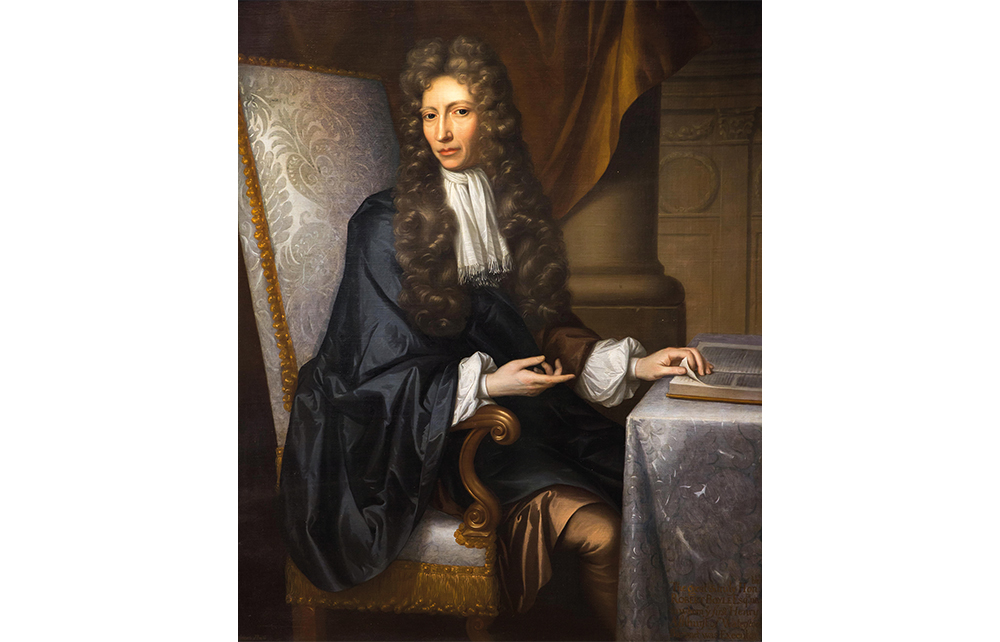In 1651, the poet Andrew Marvell was working for the parliamentarian military hero Sir Thomas Fairfax, tutoring his daughter Mary on Fairfax’s Nun Appleton estate near York. When he wasn’t delivering language lessons to his young charge, Marvell was busy composing one of the most astonishingly experimental poems of the 17th century.
Opera in the 1650s first seeded the idea that women might be able to act and entertain for money in public
‘Upon Appleton House’, dedicated to Thomas Fairfax, is, on the one hand, just another variety of early modern patronage poem in which a writer praises a member of the aristocracy and their values in return for favour or reward. From another perspective, the poem is profoundly avant-garde. It suggests that established ways of looking at things can be productively disrupted, as revealed when a minor character in the poem, a seasonal agricultural worker on the estate, objects to the way that she and her co-workers have been described by the poet-narrator, confidently and accurately predicting the metaphorical direction of the lines to follow. While such breaking of the realistic frame has become commonplace in post-modern literature and film, it’s a show-stopping, screeching handbrake-turn moment in early modern poetry.
Even though it doesn’t pause for very long over this particular Marvell poem, Alice Hunt’s excellent new book helps contextualise and explain it. The author’s primary aim is to rescue the 1650s as a revolutionary decade and to show that the period’s politics cannot be isolated from the riches of its art, philosophy and science. Often cast as an ‘interregnum’, i.e. a period between (two periods of Stuart monarchical rule) rather than a meaningful chronological span in its own right, the decade following the execution of Charles I in 1649 was a time of revolutionary change in a half-century marked by revolutionary changes, as Hunt shows. Furthermore, the Restoration of 1660 was another revolutionary moment (rather than an inevitable return to the normalcy of monarchy), underwritten by an armed coup and military intervention in parliamentary business.
From this vantage point, the insurrections and frequent dissolutions of parliament in the Cromwellian era were not experienced, by those who lived through them, as weird suspensions of the ordinary, but rather as bewildering, frightening or exciting instances of ‘creative chaos’. Since there was no shared coherent plan for political or constitutional life after the regicide, the architects of the new state disagreed about, improvised and then scripted what they wanted the future to look like. Famously, the Cromwellian Protectorate is the only British regime to have had a written constitution, The Instrument of Government.
In these terms, state formation, scientific enquiry, philosophy and artistic endeavour were all creative responses to uncertainty and the unknown. The book is structured in a way that yokes such acts and perspectives. Each chapter takes a single year from the decade and offers a lucid parliamentary or military history of it alongside a thoughtful exposition of an instance of cultural flourishing. Thus, the chapter for 1656 covers the Whitehall conference about the petitions for the formal readmission of Jews to England, and Hunt is right to illustrate that, despite the popular misconception, Cromwell’s regime never produced any official proclamation to extend toleration and liberty of conscience to Jewish people living in the country. She situates her discussion of this episode alongside an analysis of William Davenant’s entrepreneurial staging of an opera to paying punters for ten nights in his London home. Taken together, such events reveal a willingness to entertain novel and unexpected ideas that Hunt sees as absolutely characteristic of the decade.
This notion will come as a surprise to anyone who has fallen for the Stuart propaganda which insists that, because Cromwellian Puritans were such psychotic fun-sponges, it took the Restoration of the monarchy to bring order, enquiry and pleasure back to 17th-century England. Hunt repeatedly shows the hollowness of this claim. The Royal Society was one of the most enlightened and important institutions of Restoration society; but its direction was set by the Experimental Philosophy Club in 1650s Oxford, where thinkers and natural philosophers met to discuss such things as Robert Boyle’s and Robert Hooke’s experimentation with gases. They did so ‘in a climate of inclusive curiosity and commitment to… the social good of science’.
Likewise, for all of the vaunted modernity of Restoration theatre, which saw female characters played by professional women performers instead of cross-dressed apprentice actors, as had been the case in pre-civil war theatre, it was the opera of the late 1650s which first seeded the idea that women, as well as men, might be able to act and entertain for money in public. Catherine Coleman played the role of Ianthe in William Davenant’s The Siege of Rhodes (1656), opposite Henry Purcell’s father, who sang the part of Mustapha the Turk.
While Oliver Cromwell has, for very good reasons, been seen as the representative figurehead of this era, Hunt prefers the Protestant Polish emigré and polymath Samuel Hartlib as the presiding spirit of the age. Hartlib knew everybody and was interested in everything. He corresponded with John Milton about reform to the English school system, wrote to Boyle about science, was on good terms with important councillors of state, such as Henry Vane, and invited the diarist John Evelyn, who shared his passion for husbandry, to come and admire his beehive at his home in Charing Cross. Even though he was not personally wealthy, he was connected in some way to more than half of the new patents issued for inventions during the 1650s. Parliament recognised his endeavours in all fields and paid him a pension as an agent for the advancement of learning. In his willingness to embrace the new and ‘look askance at the familiar’, he epitomises both the spirit of the revolutionary decade and the analytical objectives of this imaginative and intelligent book.







Comments